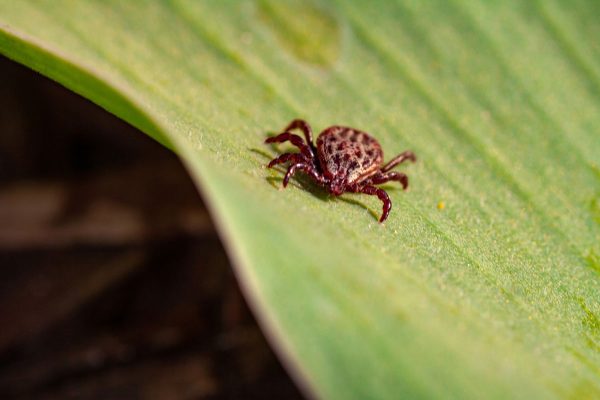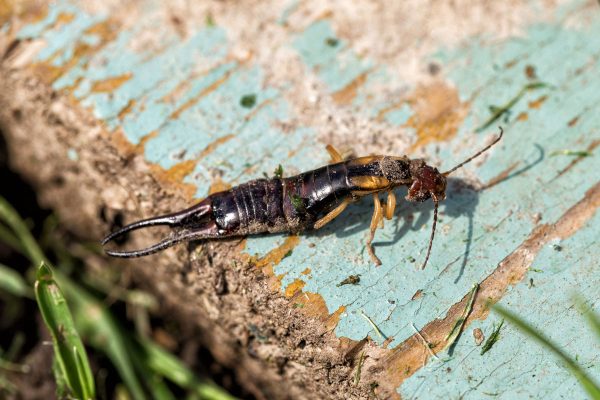Iguanas and lizards, as unique as they look, are not exactly welcome inside the house. However, as the warmer season approaches, iguanas tend to search for a shade to guard them against the sun. As you look for safe and humane ways to deter these lizards, will moth balls effectively do the trick? We have researched answers for you.
Although mothballs used to be an acceptable way to keep iguanas away from the home, they have been proven toxic when inhaled. The best way to deter iguanas is to use natural repellents or simply trap them so they can be humanely euthanized.
There are a lot of safer methods to avoid and get rid of iguanas, especially in the warm season. It's important to look for better and safer alternatives if you live with children or pets. If you want to learn more about how to properly handle lizards in your home, keep reading below.
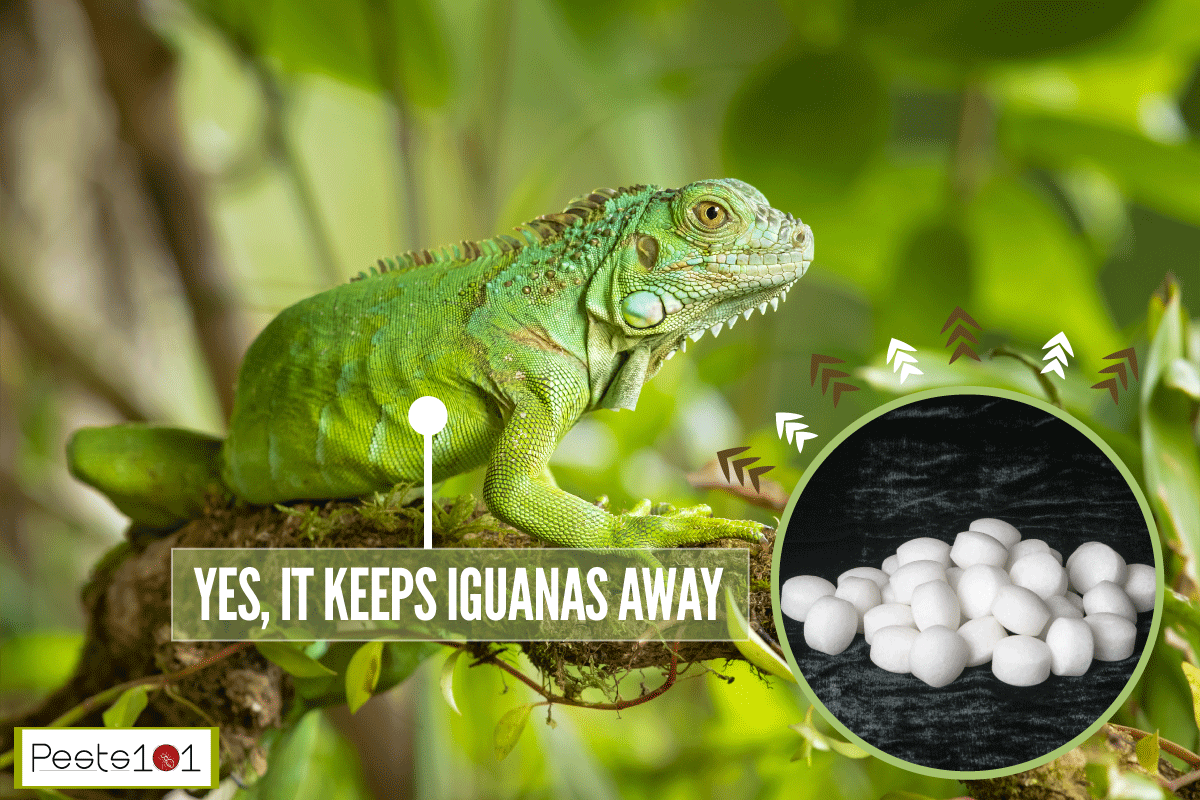
What are the best lizard repellents?
Unlike other pests, there are not many available lizard repellents on the market. Ones that are available can be dangerous when inhaled, so going for natural repellents may be a better alternative when you notice iguanas or other lizards staying in your home.
Here are some of the most effective lizard repellents.
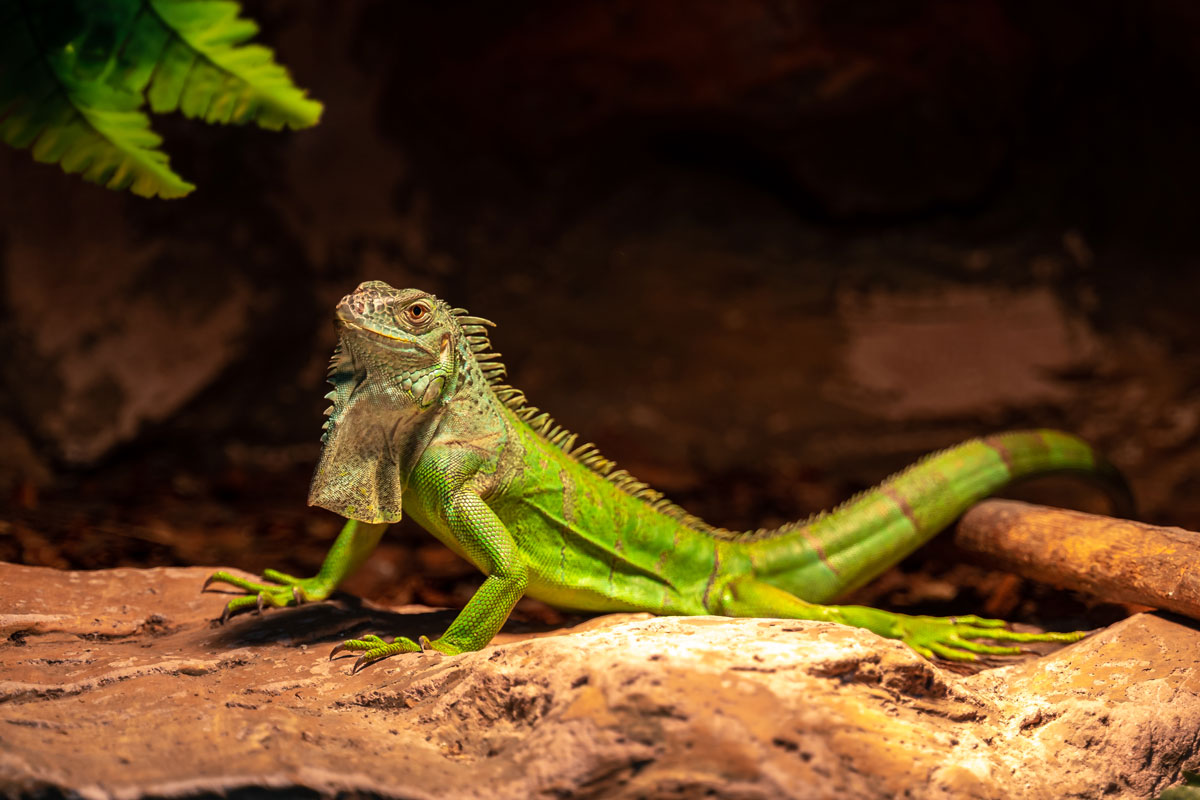
Coffee and Tobacco Powder
The coffee powder itself is an effective repellent since lizards hate the scent of coffee. The powder won't kill them, and it will make them avoid entering your house.
However, if it's a serious infestation and you don't have a choice but to kill the lizards, mix coffee powder with tobacco powder--this will poison them instantly.
Onion
Lizards hate anything with a strong scent. Hang onions around the lizards' entryway to discourage them, or make an onion juice spray to deter them.
- Blend a large onion with two teaspoons of chili pepper and one cup of water for one minute.
- Leave overnight and put in a spray bottle.
Pepper Spray
The strong, spicy scent of pepper will effectively drive lizards away. Simply put the pepper into a bag and hang it on the lizards' entryway. You can also make a homemade pepper spray by mixing cayenne pepper with water and putting it in a spray bottle.
If you can't make your own concoction, a store-bought pepper spray can also effectively get rid of them.
Garlic
Lizards avoid the enzymes in garlic. If you want to keep lizards out, scatter cloves of garlic where they usually hang out.
Cold Water Spray
If you don't want to harm lizards, use a cold water spray to shock the lizards into stopping. This will make it easier for you to pick them up and take them outside your house.
How to Trap and Snare an Iguana
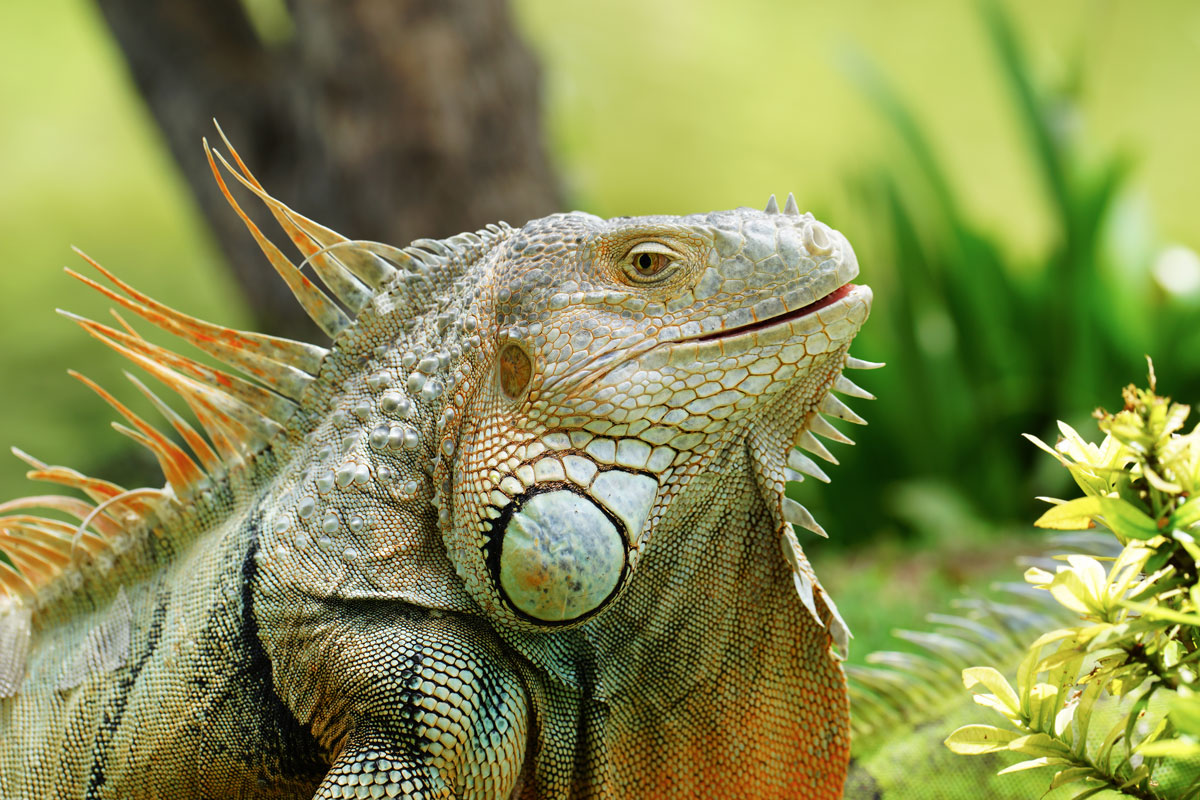
The iguana population is rising exponentially, so it's not uncommon to have an infestation. The Florida Fish and Wildlife Conservation Commission has given the "go" signal to civilians to exterminate green iguanas on their property.
Trapping them is the safest way to get rid of them, and a professional pest control service will be euthanizing them afterward. It is illegal to release them in the wild since they are non-native species, so pest control would usually freeze them.
However, younger iguanas who have been trained and sold in pet stores can be returned to the owner. It's only the wild and adult iguanas that need to be euthanized.
Here are the methods of trapping a wild iguana.
Live Cage Traps
Live cage traps are available in stores. The traps should still allow the iguanas to move without letting them escape. The trap should have bait inside, such as flowers, fruits, or vegetables, which attract iguanas.
Place these traps in the usual trail of iguanas and check if the trap has managed to catch an iguana.
After trapping them, the iguanas need to be placed in a different metal cage where they can be transferred to a facility.
Catch Pole
Catch poles should only be utilized by professionals since one mistake can injure or kill the iguana. This is because the catcher will need to catch them several feet away and catch them through a wire which should loop around the iguana's neck.
The catcher will be wearing protective clothing so they can release the iguana from the pole without harming themselves. After that, they will transfer the iguana to another location where it will be humanely euthanized.
Are Iguanas Dangerous?
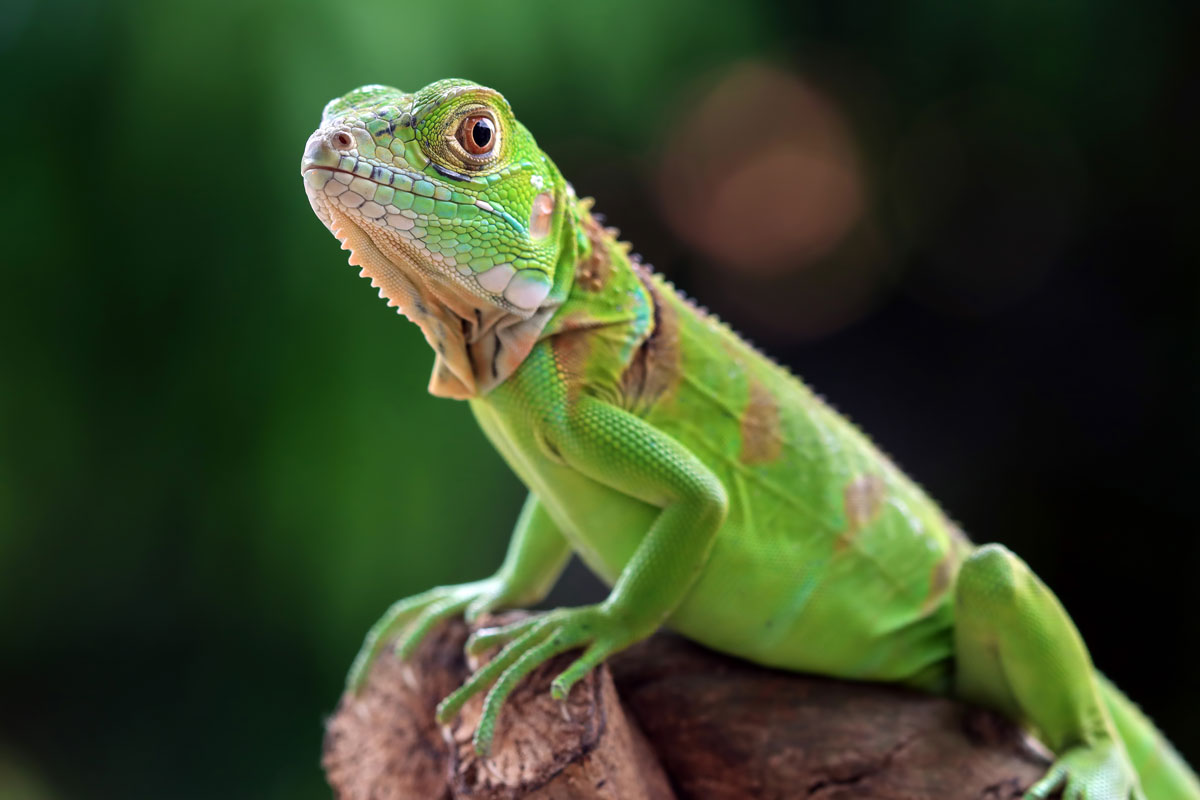
Iguanas themselves do not pose any threat to humans, but they can damage property, sidewalks, canal banks, and seawalls through their burrowing. They can grow for up 5 feet and 20 pounds, at which rate it will be difficult to get rid of them.
Warm climates are perfect for iguana reproduction, allowing them to lay 80 eggs a year. Since they are growing rapidly and can cause structural damage, extermination is encouraged.
Aside from structural damage, iguanas also carry salmonella bacteria. You can get sick from wild iguanas even through contact, so you should avoid touching them without any protective clothing.
During mating season, male iguanas also tend to be aggressive, so you shouldn't try to pick them up yourself. Male iguanas can injure you through their tails and claws, and worst-case scenario, they can bite you.
Iguana bites can be painful and cause the skin to break and bleed. However, they won't bite unless provoked, so if you notice one around your property, call pest control services immediately.
Are Iguanas Important to the Environment?
Iguanas are non-native to the wildlife in the US, so they cause more destruction than ecological benefits. They eat and destroy crops and flowers, consume most of the resources so other lizards won't have anything to feed on, and are the cause of the extinction of most endangered butterflies.
Green iguanas find their haven in South Florida where there are no natural predators to control their population, there's nothing stopping them from wreaking havoc on the ecosystem.
Since iguanas also carry diseases and parasites, they can cross-contaminate with other species in the wild. This will can potentially cause the ecosystem to get thrown out of balance.
This is why Iguanas are not seen as an important part of the natural ecosystem in the US and are only protected by the Anti-Animal Cruelty laws.
Of course, although they are seen as pests in the US, they are important species in the Caribbean since that's where their benefits are best utilized. In the right environment, they are seed dispersers and can maintain the health of native vegetation.
When are Iguanas most active?

Iguanas are most active during daytime, ideally in a 104F temperature. They are diurnal, which means they hunt during the day and rest during the night.
Iguanas breed during the end of summer, or just when the wet season is about to start. The eggs are incubated during the winter season and are hatched just in time during the spring and summer.
Do iguanas survive the winter?
Iguanas go through a thermal shock when the temperature suddenly drops. Green iguanas in Florida typically stay on top of trees, so you may see them suddenly falling off when the weather turns cold.
They typically survive through the shock after a few hours or days, but if the temperature remains cold for longer, the iguanas can die.
When given time to prepare, iguanas go through a process called "brumation" which is a state of dormancy common among lizards and other cold-blooded animals. During this time, iguanas will soak up as much heat in their body, then burrow under the sun when winter arrives.
Iguanas can stay under icy ground for several months, going out only when the sun peeks out.
Even during the winter season, iguanas will not migrate to warmer areas and will only hide from the harsh temperature. They are naturally territorial, so they will rarely travel long distances.
Final Thoughts
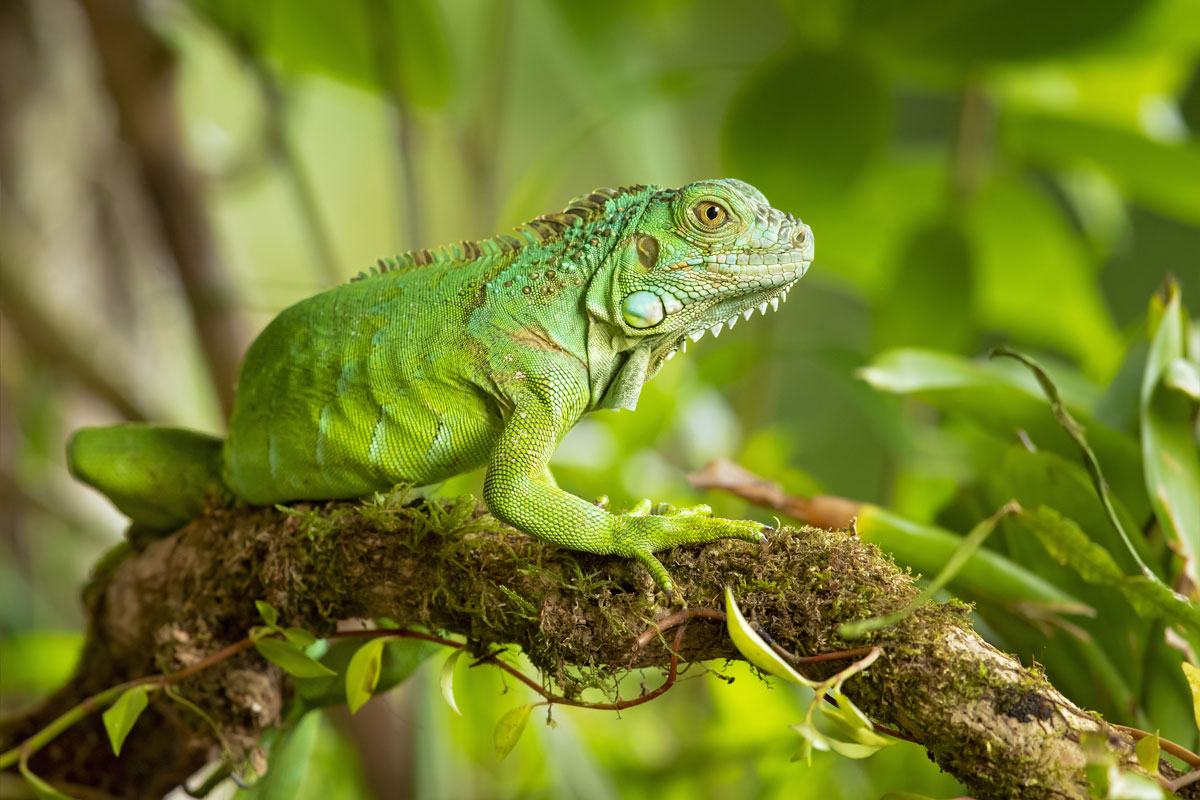
Although we can't help but marvel over exotic-looking animals, they lose their appeal when they start invading our homes. Iguanas are only beneficial in specific conditions, but if they are non-native, their stay is more disadvantageous.
If you notice an infestation, call pest control services immediately to avoid any reptile-related accidents.
If you enjoyed this article, check out "Can Sevin Be Used Indoors?" or "Sevin Not Killing Aphids – What To Do?" to learn more about handling garden pests.


